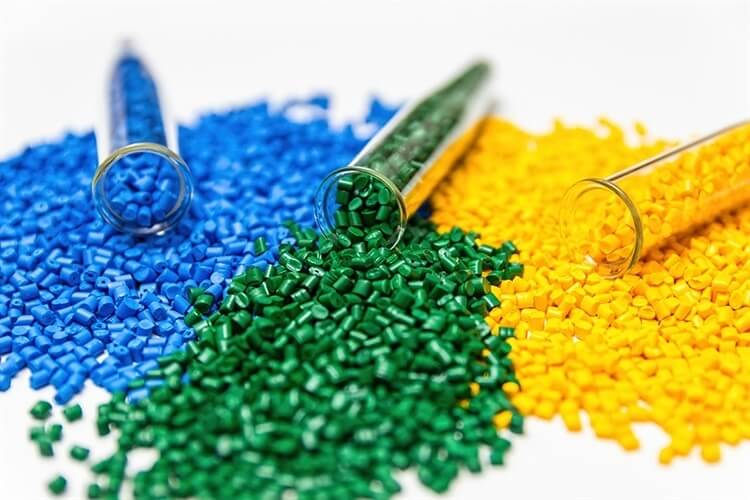Exploring the Varied Applications and Advantages of Polymers in Different Industries
Polymers, with their diverse variety of homes and capabilities, have become vital in various sectors, each enjoying one-of-a-kind advantages from their application. From enhancing security and performance in the auto market to reinventing medical devices in the medical care industry, polymers play an essential function.
Automotive Field Applications
Polymers play a critical role in improving the performance and toughness of various components within the auto market. These flexible products are extensively utilized in the manufacturing of different components, ranging from interior elements to under-the-hood applications. One famous use of polymers in the automobile industry remains in the production of light-weight components. By replacing traditional steel components with polymer-based options, automobiles can attain enhanced fuel effectiveness without compromising on strength or safety.

Healthcare Market Advantages
In various medical care applications, the advantages of using polymers are commonly identified for their diverse series of beneficial properties. Polymers play an important role in the health care industry as a result of their adaptability, biocompatibility, and cost-effectiveness. One of the primary benefits of polymers in health care is their capacity to be tailored to specific requirements, such as flexibility, longevity, and biodegradability, making them optimal for a large range of medical applications.
Polymer-based materials are thoroughly utilized in clinical devices, such as catheters, implants, prosthetics, and medication distribution systems, as a result of their biocompatibility and capacity to simulate natural tissues. These products can reduce the danger of allergies or beings rejected, boosting individual safety and end results. In addition, polymers are light-weight, making them suitable for wearable medical tools and ensuring individual convenience.
Furthermore, polymers make it possible for the growth of innovative treatment methods, such as hydrogels for tissue design and nanocomposites for targeted medicine delivery. Their convenience of handling and sanitation makes them crucial for preserving high requirements of health in health care settings. Overall, the varied benefits of polymers add significantly to improvements in clinical modern technology and patient care.
Ecological Advantages of Polymers

Moreover, polymers can add to power financial savings because of their light-weight nature. In markets such as transport, light-weight polymer products can aid lower fuel consumption and greenhouse gas emissions. Additionally, polymers can enable the advancement of energy-efficient items such as insulation materials that enhance energy preservation in structures.
Additionally, polymers play a crucial function in minimizing water air pollution. For instance, making use of polymer-based purification systems can successfully remove pollutants and pollutants from wastewater, securing water sources and ecological communities. Generally, the ecological advantages of polymers make them important properties in promoting sustainability and green methods throughout numerous markets.
Polymers in Electronic Devices and Innovation
Considering the enhancing demand for innovative and lasting solutions in modern industries, the combination of try this sophisticated polymer innovations in the world of electronics and modern technology has actually become a critical method for driving effectiveness and performance. Polymers have changed the electronics sector by making it possible for the manufacturing of lighter, more versatile, and durable digital devices. From smartphones to medical tools, polymers play a crucial function in boosting product layout and functionality.
One substantial benefit of polymers in electronic devices is their shielding residential or commercial properties, which aid secure fragile digital parts from environmental elements and electrical interference. Furthermore, polymers are essential in the development of versatile screens, wearable innovation, and published electronics, supplying unlimited opportunities for creating clever and interconnected devices.
Furthermore, using polymers in electronic see this page packaging has caused innovations in miniaturization and thermal management, enhancing the general efficiency and reliability of digital systems. As innovation remains to progress, the flexibility and adaptability of polymers will certainly drive even more technology in the electronic devices industry, forming the future of modern technology.
Duty of Polymers in Building and Facilities
The combination of innovative polymer materials in building and construction and infrastructure jobs has transformed the way structures are designed and integrated in contemporary times. Polymers offer countless advantages in the building and construction market due to their versatility, sturdiness, and cost-effectiveness. One key function of polymers in building is their usage in coverings and sealers, providing protection against ecological variables such as dampness, UV radiation, and deterioration. Furthermore, polymers are made use of in the production of light-weight and high-strength composite products, improving the structural integrity of structures while lowering total weight.
In addition, polymers play a critical duty in sustainable building and construction methods by making it possible for the growth of energy-efficient structures. Insulating products made from polymers assist control indoor temperature levels, reducing the need for home heating and cooling down systems and ultimately lowering energy usage. Furthermore, making check this use of polymer-based compounds in framework tasks such as bridges and roadways improves their long life and minimizes upkeep prices. Overall, the consolidation of polymers in building and construction and framework displays their significant effect on contemporary design practices.
Verdict
In conclusion, polymers play a vital role in various markets such as automobile, healthcare, ecological, electronic devices, and building and construction. From boosting gas efficiency in cars to enhancing medical tools, polymers offer many benefits.